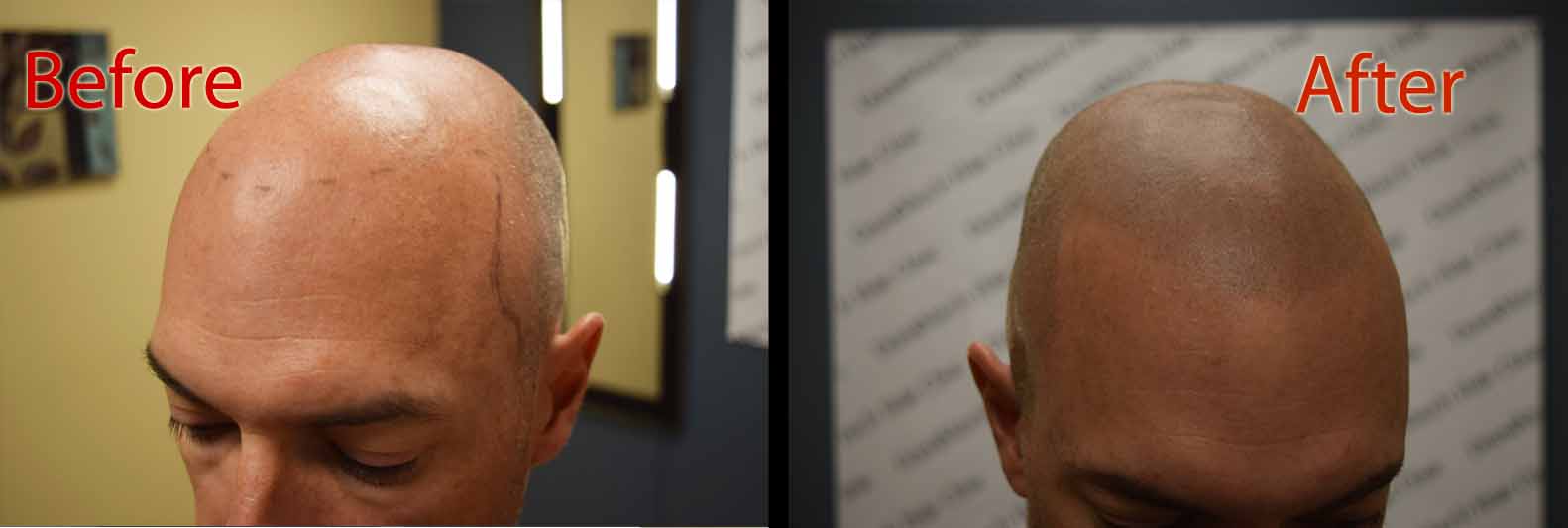Caffeine hair treatment offers potential benefits when applied directly to your scalp. This stimulating compound may help block DHT, the hormone responsible for pattern hair loss. Research suggests caffeine can extend the hair growth phase and increase follicle activity.
Topical caffeine works differently from drinking coffee. Applied directly to the scalp, it penetrates hair follicles more effectively. The concentration reaches therapeutic levels without systemic side effects like jitters or sleep disruption.
Studies show caffeine may counteract testosterone effects on hair follicles. It blocks receptors that normally cause follicle shrinkage. This protective action could slow hair loss progression in some individuals.
How Caffeine Stimulates Hair Follicles?
Caffeine increases blood circulation when applied to the scalp. Enhanced blood flow delivers more nutrients and oxygen to hair roots. This improved circulation creates better conditions for existing hair growth.
The compound also extends the anagen phase, the active growing period of hair cycles. Longer growth phases mean individual hairs stay attached longer before shedding. This can result in improved hair density over time.
Caffeine may strengthen hair shaft structure by improving protein synthesis. Stronger individual hairs break less frequently and appear fuller. The stimulating effects can make existing hair look healthier and more voluminous.
Popular Caffeine Treatment Methods
Many hair care products now contain caffeine as an active ingredient. Specialized shampoos offer the easiest application method for daily use. These formulations typically contain 1-2% caffeine concentration for optimal absorption.
Hair tonics and serums provide more concentrated caffeine delivery systems. These products require direct scalp application and gentle massaging.
Some people create homemade caffeine hair treatments using strong coffee or green tea. These DIY approaches provide inconsistent caffeine concentrations. Commercial products offer more reliable dosing and better penetration enhancers.
Leave-in treatments allow longer contact time between caffeine and follicles. These products don’t require rinsing, maximizing absorption potential. However, they may leave residue or affect hair texture in some users.
Scientific Evidence and Research Results
German studies demonstrate caffeine’s ability to stimulate hair follicles in laboratory conditions. Test subjects showed increased hair shaft elongation after caffeine application. However, these studies used concentrated solutions under controlled conditions.
Real-world results often fall short of laboratory findings. Many users report modest improvements in hair texture and reduced shedding. Complete hair regrowth remains rare with caffeine treatments alone.
The research shows caffeine works best for early-stage hair loss. Once follicles become severely miniaturized, topical treatments provide limited benefits. Advanced pattern baldness typically requires more intensive interventions.
Caffeine treatments work slowly and require consistent, long-term use. Most people need three to six months of regular application before noticing changes.
The treatment helps maintain existing hair better than regrowing lost strands. People with mild thinning may see the best outcomes. Complete baldness or extensive hair loss rarely improves with caffeine alone.
Individual responses vary significantly based on genetics, age, and hair loss severity. Some users experience noticeable benefits while others see no improvement. Discontinuing treatment typically results in a gradual return to previous hair loss patterns.
Limitations of Topical Caffeine Solutions
Caffeine cannot reverse severe follicle damage or dormant follicles. Once follicles stop producing hair completely, topical treatments become ineffective. Hormonal hair loss often progresses despite caffeine intervention.
The treatment requires ongoing daily application for maintenance. Missing applications can reduce effectiveness quickly. The time commitment and consistency demands discourage many users from continuing long-term.
Side effects may include scalp irritation, redness, or sensitivity reactions. People with caffeine allergies should avoid these treatments completely. Sensitive skin types often cannot tolerate concentrated caffeine formulations.
Natural remedies work best for prevention rather than restoration.
Genetic pattern baldness typically overwhelms topical treatment. Male and female pattern hair loss involves complex hormonal processes that require comprehensive medical management. Simple topical applications cannot address these underlying mechanisms.
The emotional impact of continued hair loss often outweighs modest improvements from natural treatments. Many individuals seek more reliable, permanent solutions after exhausting conservative approaches.
Scalp Micropigmentation as a Superior Alternative
SMP provides immediate, guaranteed results regardless of hair loss severity. This specialized procedure creates a realistic hair appearance through precise pigment placement. Unlike topical treatments, SMP works for everyone regardless of age, genetics, or follicle condition.
The procedure delivers permanent results without ongoing maintenance requirements.
SMP works equally well for complete baldness, pattern thinning, or specific problem areas. The technique adapts to any hair loss pattern or skin tone. Results look natural and undetectable when performed correctly.
Unlike caffeine treatments that may help some people, scalp micropigmentation guarantees visual improvement for every client. Arizona SMP experts focus on eliminating uncertainty.
Scalp micropigmentation requires completely different techniques from conventional tattooing. The needle depth, pigment selection, dot placement patterns, and color matching demand extensive specialized education. Poorly executed procedures result in unnatural colors, wrong dot sizes, or obvious artificial appearance. These mistakes often require expensive laser removal before corrective treatment becomes possible. Some botched work leaves permanent scarring that prevents future SMP procedures.
Avoid practitioners who primarily advertise tattoo services but offer SMP as additional income. Choose specialists who focus exclusively on scalp micropigmentation and understand the unique challenges of this procedure. Trust DermiMatch Clinic scalp micropigmentation Arizona experts.

